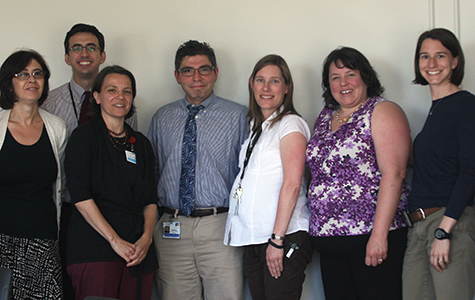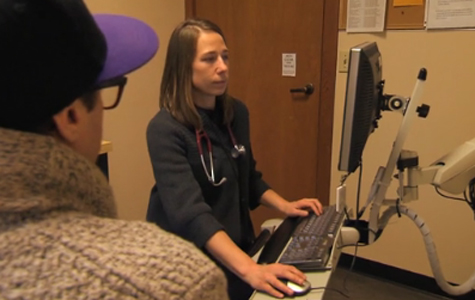Today’s psychiatric residents train within the context of an evolving global health care system. A landscape of shifting policies and regulations, limited resources, and the search for cost effective, positive outcomes have created the need for innovative, mindful approaches to patient-centered care. Integrated care – providing mental health services within the context of primary care …


The Ravenna Clinic is tucked away among University Village yoga studios and restaurants. As one of the newer University of Washington Neighborhood Clinics, it has an impressive appearance. Elegant windows overlook the trees of the local biking trail, and in the lobby, cheerful receptionists greet patients amid a colorful décor. Monica Miller, MSW holds a …

The Collaborative Care model of integrated care developed at the University of Washington has been put in place at more than a thousand clinics across the country, including in the backyard of UW Medicine. The Behavioral Health Integration Program, or BHIP, has not only recently expanded to include all nine UW Neighborhood Clinics – a …

From very early on, Rita Haverkamp, MSN, PMHCNS-BC, CNS, was part of the Collaborative Care story. She saw the model grow from the ground up — from its infancy in the IMPACT Trial to the growing pains of early implementations and then to the expansive, evidence-based approach to integrated mental health care it is today. As …

Angel Mathis, ARNP was the primary care provider (PCP) featured in Daniel’s Story, a video chronicling a young man named Daniel and his journey with depression. Angel worked with a Collaborative Care team to deliver Daniel’s depression care at County Doctor, a community health center in the Mental Health Integration Program. Angel joined Country Doctor …

Over 1.7 million people are diagnosed with cancer each year, and about 7 million people currently live with a cancer diagnosis in the United States. Studies show that over one in three men and women will be diagnosed with cancer in their lifetime. While these numbers are startling, advancements in treatment now help cancer patients live longer, …

A new member of the AIMS Center started his tenure here with a bang and a lot of press. John Fortney, PhD joined us as the Associate Director for Research in September and recently published an intriguing study in JAMA Psychiatry about alleviating PTSD symptoms in U.S. Military veterans living in rural areas using a …